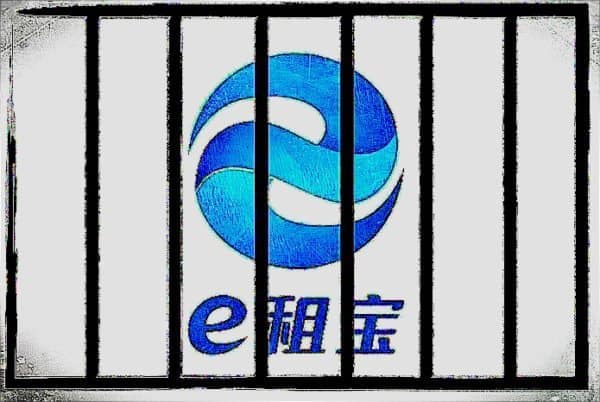Following the much-talked-about Ezubao $7.6 billion Ponzi scheme collapse at the end of last year, the perception and outlook of the Chinese online lending industry has grown increasingly negative both within and outside of China. Murmurs of regulation began floating around in early 2014 but only became reality after the Chinese State Council issued supportive guidelines for internet finance in July 2015, delegating the oversight of online lending platforms to the China Banking Regulatory Commission (“CBRC”). However, draft rules for the online lending industry were only recently announced at the tail-end of 2015 with no proposed timeline on when the regulations will be finalized.
 From what I gather from media reports, blogs, and other industry forums, it appears that many are supportive of the pending regulations, citing fraud cases such as Ezubao highlight the urgent need for greater oversight of the industry. However, it must be clarified that regulation involves two components: laws and enforcement. I believe the latter should be the main focus of oversight efforts. More rules on their own will not reduce the frequency of fraud, but increased enforcement of existing laws should reduce the amount of illegal activity behind the billions in investor losses and tarnishing of the industry’s image.
From what I gather from media reports, blogs, and other industry forums, it appears that many are supportive of the pending regulations, citing fraud cases such as Ezubao highlight the urgent need for greater oversight of the industry. However, it must be clarified that regulation involves two components: laws and enforcement. I believe the latter should be the main focus of oversight efforts. More rules on their own will not reduce the frequency of fraud, but increased enforcement of existing laws should reduce the amount of illegal activity behind the billions in investor losses and tarnishing of the industry’s image.
Take the Ezubao case, for example. Does China already have laws that criminalize Ponzi schemes? Yes. Does China have laws that criminalize financial frauds in general? Yes.
 These laws are in place but not properly enforced, and suspicious cases are not being investigated in a timely manner. Bloggers and industry commentators have long voiced their suspicions about Ezubao, but government intervention did not come until it was too late, ultimately at the expense of investors. Now looking at the 80 bags of documents and other evidence that has been literally unearthed from where they were buried six meters underground, only some common sense and a little light “digging” would have been enough to expose the fraud. There are sufficient laws and policies currently in place that allow the government to investigate and prosecute fraud cases such as Ezubao, but the lack of vigilant enforcement is the reason similar schemes continue to operate.
These laws are in place but not properly enforced, and suspicious cases are not being investigated in a timely manner. Bloggers and industry commentators have long voiced their suspicions about Ezubao, but government intervention did not come until it was too late, ultimately at the expense of investors. Now looking at the 80 bags of documents and other evidence that has been literally unearthed from where they were buried six meters underground, only some common sense and a little light “digging” would have been enough to expose the fraud. There are sufficient laws and policies currently in place that allow the government to investigate and prosecute fraud cases such as Ezubao, but the lack of vigilant enforcement is the reason similar schemes continue to operate.
In another case, an investigative media outlet (www.watching.cn) exposed a Ponzi scheme conducted by Zhuoda Group, a real estate developer in Hebei province that involved over 400,000 investors. Zhuoda offered “wealth management products” completely offline with annual returns as high as 30% supposedly generated by the firm’s “new materials” business. The firm boasted trillions of RMB in annual sales and even published a fabricated document to “prove” that it had a multibillion dollar supply contract with Russia. The scheme had been operating for years, and it didn’t take much effort for journalists to expose the fraud. However, although there is strong, public evidence of fraud, regulators have not announced a formal investigation or prosecution as has been the case with Ezubao.
 Thus, financial fraud should not be painted solely as a Chinese P2P lending industry issue; it is a prevalent issue in many Chinese industries and needs to be addressed with increased, proper law enforcement. While the online model does make it easier for fraudulent schemes to grow at a much more rapid pace, as exemplified by Ezubao, it has also increased transparency, allowing the public to more quickly identify and expose these frauds. A Ponzi scheme conducted offline can quietly amass billions of investor funds over a long period of time (as we have seen with the Bernie Madoff case). On the other hand, an online Ponzi scheme may be able to grow quickly but can easily be exposed and stopped with vigilant oversight. It could be argued that the existence of online lending and other web-enabled financial services may even help to reduce instances of financial fraud, rather than contribute to the problem.
Thus, financial fraud should not be painted solely as a Chinese P2P lending industry issue; it is a prevalent issue in many Chinese industries and needs to be addressed with increased, proper law enforcement. While the online model does make it easier for fraudulent schemes to grow at a much more rapid pace, as exemplified by Ezubao, it has also increased transparency, allowing the public to more quickly identify and expose these frauds. A Ponzi scheme conducted offline can quietly amass billions of investor funds over a long period of time (as we have seen with the Bernie Madoff case). On the other hand, an online Ponzi scheme may be able to grow quickly but can easily be exposed and stopped with vigilant oversight. It could be argued that the existence of online lending and other web-enabled financial services may even help to reduce instances of financial fraud, rather than contribute to the problem.
 If the government’s goal is to reduce financial fraud within the online lending industry, it needs to focus on better enforcement of existing financial laws. Without active enforcement, the new rules outlined in the draft online lending regulations will be useless in helping to clean up the industry. Granted, proper oversight will not be easy to effectively implement, given the size of market, the plurality of firms engaged in financial services across China, and the lack of competent local regulators dedicated to performing the task at hand. For example, we should expect to find the most talented bureaucrats working at regulatory agencies in major municipalities, but the best we have seen so far from the Beijing, Shanghai, and Shenzhen regulators is a sort of lazy enforcement effort that involves a complete shutdown of registration of new businesses engaging in online lending or wealth management. Other enforcement actions have included going as far as to remove and prohibit all wealth management advertisement in all of Beijing. As one can imagine, none of these “enforcement” actions will help to expose cases of ongoing fraud and will only deter legitimate growth of the industry.
If the government’s goal is to reduce financial fraud within the online lending industry, it needs to focus on better enforcement of existing financial laws. Without active enforcement, the new rules outlined in the draft online lending regulations will be useless in helping to clean up the industry. Granted, proper oversight will not be easy to effectively implement, given the size of market, the plurality of firms engaged in financial services across China, and the lack of competent local regulators dedicated to performing the task at hand. For example, we should expect to find the most talented bureaucrats working at regulatory agencies in major municipalities, but the best we have seen so far from the Beijing, Shanghai, and Shenzhen regulators is a sort of lazy enforcement effort that involves a complete shutdown of registration of new businesses engaging in online lending or wealth management. Other enforcement actions have included going as far as to remove and prohibit all wealth management advertisement in all of Beijing. As one can imagine, none of these “enforcement” actions will help to expose cases of ongoing fraud and will only deter legitimate growth of the industry.
 If the government’s goal is to set standards for the industry and to reduce risks of platform bankruptcies and large investor losses, my advice is to let the market take action. Proper platforms will self-regulate to increase transparency and improve risk management due to competitive market dynamics and will not be driven by regulatory changes. This will be particularly true if the new regulations have an 18-month transition period because the Chinese market changes more quickly and will induce the change and consolidation needed to clean up the industry on its own. By the time the new rules take effect, they may be completely outdated and unsuitable for the current market environment. Regardless, enforcement of these new rules will be crucial and will face the same challenges as that responsibility will once again be in the hands of local regulators.
If the government’s goal is to set standards for the industry and to reduce risks of platform bankruptcies and large investor losses, my advice is to let the market take action. Proper platforms will self-regulate to increase transparency and improve risk management due to competitive market dynamics and will not be driven by regulatory changes. This will be particularly true if the new regulations have an 18-month transition period because the Chinese market changes more quickly and will induce the change and consolidation needed to clean up the industry on its own. By the time the new rules take effect, they may be completely outdated and unsuitable for the current market environment. Regardless, enforcement of these new rules will be crucial and will face the same challenges as that responsibility will once again be in the hands of local regulators.
 Spencer Ang Li has served as Fincera’s Vice President of Product since June 2015 and as Chief Executive Officer for Fincera’s multiple product development subsidiaries since March 2014. Prior to joining Fincera, Mr. Li was an Investment Banking Analyst at Cogent Partners in New York, a sell-side advisor for private equity secondary transactions, from 2011 to 2014. During his tenure at Cogent, Mr. Li conducted fund due diligence, managed marketing processes, and participated in the sale and transfer of nearly $2 billion in limited partnership interests on behalf of public pensions, large regional banks, asset managers, and other financial institutions. Mr. Li received a BS in Economics and BA in Psychology from Duke University in 2011.
Spencer Ang Li has served as Fincera’s Vice President of Product since June 2015 and as Chief Executive Officer for Fincera’s multiple product development subsidiaries since March 2014. Prior to joining Fincera, Mr. Li was an Investment Banking Analyst at Cogent Partners in New York, a sell-side advisor for private equity secondary transactions, from 2011 to 2014. During his tenure at Cogent, Mr. Li conducted fund due diligence, managed marketing processes, and participated in the sale and transfer of nearly $2 billion in limited partnership interests on behalf of public pensions, large regional banks, asset managers, and other financial institutions. Mr. Li received a BS in Economics and BA in Psychology from Duke University in 2011.


